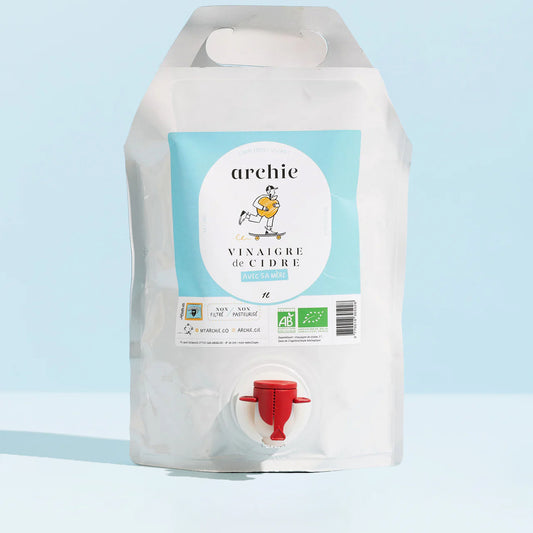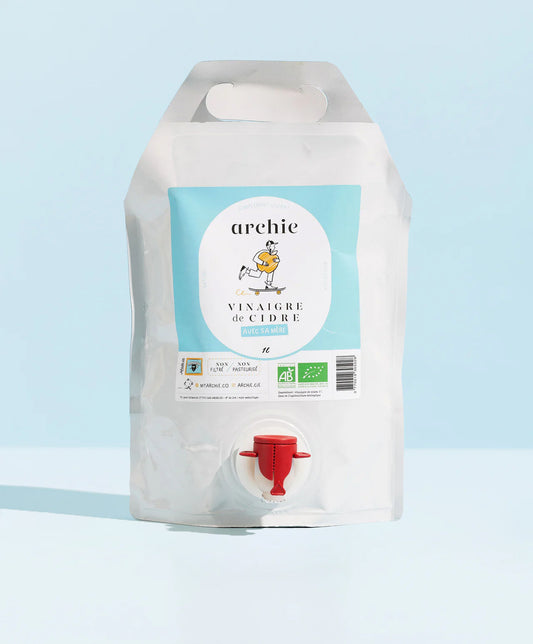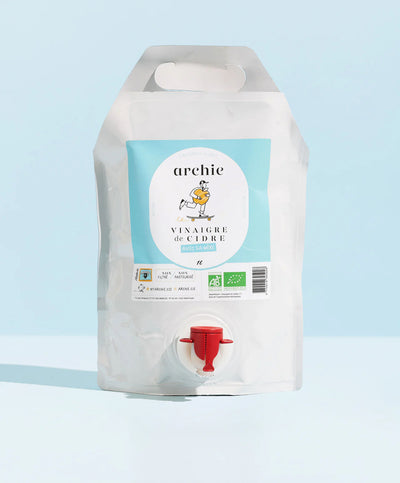In France, approximately 20% of the population suffers from at least one gastric symptom.
Gastroesophageal reflux disease (GERD), or acid reflux, is an uncomfortable experience for many people and can negatively impact quality of life. This condition occurs when stomach contents flow back up into the esophagus, causing an unpleasant burning sensation and sometimes chest pain. While some cases of acid reflux require medical attention, there are also quick and natural remedies to soothe these unpleasant symptoms.
In this article, we'll explore gastroesophageal reflux disease (GERD) to understand this condition and its symptoms. We'll review natural and practical remedies for quickly relieving acid reflux. Whether through dietary changes, home remedies, or relaxation techniques, you'll discover how to regain control of your digestive well-being and combat GERD.
Understanding gastroesophageal reflux
Acid reflux occurs when the lower esophageal sphincter (LES), a valve between the esophagus and the stomach, does not close properly or opens inappropriately. This allows stomach acid to flow back up into the esophagus, irritating its lining and causing reflux symptoms.
Symptoms of gastric reflux
Symptoms of acid reflux can vary from person to person, but here are some of the most common:
Heartburn
This is one of the most common types of acid reflux. Heartburn manifests as an unpleasant burning sensation in the chest that can extend to the throat.
Regurgitation
People suffering from acid reflux may experience a sensation of acidic liquid rising or regurgitation into the mouth, sometimes accompanied by a bitter or sour taste.
Difficulty swallowing
Gastric reflux can cause a feeling of constriction or blockage in the throat, making it difficult to swallow.
Chest pain
Some people may experience chest pains similar to those of a heart attack, although these pains are usually less intense and not related to a heart condition.
Chronic cough
Acid reflux can cause irritation of the throat and airways, which can lead to a chronic cough, especially at night.
Hoarseness of the voice
Throat irritation caused by acid reflux can also lead to persistent hoarseness.
Sensation of a tight throat
Some individuals may experience a feeling of tightness or constriction in the throat, which may be caused by irritation of the esophagus.
It's important to note that acid reflux can be intermittent or chronic, and that symptoms can vary in intensity from person to person. If you experience acid reflux symptoms regularly, it's advisable to consult a healthcare professional for an accurate diagnosis and a suitable treatment plan.
Causes of gastric reflux
GERD occurs when acidic stomach contents flow back up into the esophagus, causing symptoms such as heartburn, regurgitation, and sometimes chest pain. The main causes of GERD include:
Lower esophageal sphincter (LES) relaxation
The lower esophageal sphincter (LES) is a muscle located at the junction between the esophagus and the stomach. Normally, it contracts after food has passed into the stomach, thus preventing reflux. However, if this muscle relaxes excessively or functions abnormally, it can allow stomach acid to flow back up into the esophagus.
Hiatal hernia
A hiatal hernia occurs when the upper part of the stomach pushes through the diaphragm and into the chest cavity. This can weaken the lower esophageal sphincter (LES) and promote acid reflux.
Dietary factors
Certain foods and drinks can worsen GERD in some people, including fatty, spicy or acidic foods, as well as caffeine, alcohol and chocolate.
Obesity
Excess weight can put extra pressure on the stomach, which can promote reflux.
Smoking
Smoking can weaken the lower esophageal sphincter (LES) and increase stomach acid production, which promotes reflux. Reducing or even stopping smoking can help alleviate symptoms.
Pregnancy
Hormonal changes and increased pressure on the stomach during pregnancy can promote reflux.
Some medications
Certain medications, such as proton pump inhibitors (PPIs), calcium-based antihypertensives, tricyclic antidepressants, and sedatives, can worsen reflux symptoms in some people.

Quick and Natural Remedies for Acid Reflux
To combat acid reflux, there are various natural remedies; here are our tips:
Drink water
Drinking a glass of water can help dilute stomach acids and flush them out of the esophagus, thus soothing the burning sensation.
Drink lemon juice
Although it may seem counterintuitive, fresh lemon juice, mixed with water, can actually neutralize stomach acidity and relieve acid reflux.
Drinking Aloe Vera
Pure aloe vera juice is renowned for its soothing properties on the digestive system. Drinking aloe vera juice can help reduce inflammation and soothe the symptoms of acid reflux.
Take some baking soda
A teaspoon of baking soda mixed with water can help neutralize stomach acid and quickly relieve heartburn. It's the ultimate home remedy.
Drink peppermint tea
Peppermint is known for its soothing properties on the digestive system. A cup of peppermint tea or a few drops of essential oil can help calm acid reflux and reduce discomfort.
Drink ginger
Ginger is a well-known natural remedy for digestive problems. An infusion of fresh ginger can help soothe the stomach and reduce reflux symptoms.
Chewing sugar-free gum
Chewing sugar-free gum can stimulate saliva production, which may help neutralize stomach acids and soothe reflux symptoms.
Eating licorice gum
Licorice gum, particularly that containing deglycyrrhizinated licorice (DGL), can help form a protective coating on the lining of the esophagus, thus reducing irritation caused by gastric reflux.
Eating garlic
Garlic is often considered a natural remedy for digestive problems. A small amount of fresh garlic or garlic powder can be added to dishes to help reduce acid reflux.
Drink chamomile
Chamomile is known for its soothing properties on the digestive system. A cup of chamomile tea can help calm the stomach and reduce reflux symptoms.
Consume basil
Fresh basil is rich in antioxidants and anti-inflammatory compounds, making it an effective natural remedy for relieving acid reflux. You can chew fresh basil leaves or add them to your dishes to reap its benefits.
Drink cabbage juice
Fermented cabbage juice contains probiotics that are beneficial for digestive health. Drinking a small glass of sauerkraut juice can help restore the balance of gut flora and relieve acid reflux.
Drink potato juice
Potato juice is a traditional remedy used to relieve the symptoms of gastroesophageal reflux disease (GERD) and other gastrointestinal problems. It helps soothe irritation of the esophageal lining by forming a protective coating.
Eat fennel seeds
Fennel seeds have long been used as a natural remedy for digestive problems. Chewing a few fennel seeds after meals can help relieve reflux symptoms.
Drinking infusions of licorice root
Licorice root infusion can help protect the lining of the esophagus and reduce inflammation associated with acid reflux. Simply steep a teaspoon of dried licorice root in hot water for a few minutes, then strain and drink.
Drink coconut water
Coconut water is rich in electrolytes and can help balance acidity levels in the stomach, which may help relieve acid reflux.
Do breathing and relaxation exercises
Practicing deep breathing and relaxation techniques, such as yoga or meditation, can help reduce stress and anxiety, which can worsen acid reflux symptoms.
Avoid triggers
Identify the foods and drinks that trigger your acid reflux and try to avoid them as much as possible. Common triggers include spicy, fatty, and acidic foods, as well as caffeine and alcohol. Be sure to monitor your intake.

Foods that can help soothe acid reflux
Bananas are sweet and not acidic, making them an ideal choice for soothing the stomach and reducing acid reflux.
Oats are a mild and easily digestible grain that can help absorb excess stomach acid and relieve heartburn.
Plain yogurt , especially that containing probiotics, can help balance gut flora and reduce stomach inflammation, thus helping to relieve reflux symptoms.
Lean proteins such as cooked chicken or fish may be easier to digest than fatty meats, which may help reduce acid reflux.
Green vegetables such as spinach, broccoli, and green beans are rich in fiber and essential nutrients, and can help soothe the stomach.
Cooked potatoes are soft and can help absorb excess stomach acid, thus relieving heartburn.
Brown rice is another mild and easily digestible grain that can help soothe the stomach and reduce acid reflux.
Honey has soothing properties and can help coat the esophagus, thus helping to relieve heartburn.
Wholemeal bread is a source of dietary fiber which can help regulate digestion and reduce acid reflux.
Fresh herbs such as parsley, basil, and coriander can be added to dishes for their flavor and soothing properties on the digestive system.

Things to avoid to prevent worsening acid reflux
In addition to using natural remedies, it's important to avoid certain behaviors and habits that can worsen acid reflux. Here are some things to avoid:
Hearty meals
Meals that are too high in fat and in large quantities can increase pressure in the stomach, thus promoting acid reflux. Opt for smaller, more frequent meals to avoid this problem.
The reclining position after meals
Lying down immediately after a meal can promote acid reflux. Try to remain seated or standing for at least 2 to 3 hours after eating.
Tight clothing
Tight clothing around the waist can put extra pressure on the stomach, which can worsen acid reflux. Opt for loose, comfortable clothing to avoid this pressure.
Smoking
Smoking can weaken the lower esophageal sphincter (LES), the valve between the esophagus and stomach, which can increase the risk of acid reflux. Quitting smoking can therefore help reduce these symptoms.

Treatments for acid reflux: medication and dietary supplements
Medicine
Antacids: Over-the-counter antacids can help neutralize stomach acid and relieve occasional heartburn.
Proton pump inhibitors (PPIs): They reduce the production of gastric acid and are effective in treating more severe and frequent reflux.
H2 receptor antagonists: These medications reduce the production of stomach acid and can be used to relieve the symptoms of GERD.
Dietary supplements
Mastic gum: Mastic gum may help relieve GERD symptoms by forming a protective coating in the stomach.
Probiotics: Some probiotics can help restore the balance of bacteria in the digestive system, which may improve GERD symptoms for some people.
Discover our dietary supplements to aid digestion!
Acid reflux can be a source of discomfort, but fortunately, there are several quick and natural remedies to relieve these unpleasant reflux symptoms. By incorporating these simple solutions into your daily routine and avoiding known triggers, you can better manage your acid reflux and regain optimal digestive comfort. However, if symptoms persist or worsen, it is important to consult a healthcare professional for proper diagnosis and treatment.



























